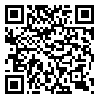

Volume 22, Issue 4 (12-2024)
RBS 2024, 22(4): 787-797 |
Back to browse issues page
Download citation:
BibTeX | RIS | EndNote | Medlars | ProCite | Reference Manager | RefWorks
Send citation to:



BibTeX | RIS | EndNote | Medlars | ProCite | Reference Manager | RefWorks
Send citation to:
Yaghoobi A, Fanaei Nemat Sara Z. Anticipating Crisis-oriented Personal Evaluation Moms with Children with LDs based on Cognitive Flexibility with The Mediating Role of Spiritual Beliefs. RBS 2024; 22 (4) :787-797
URL: http://rbs.mui.ac.ir/article-1-1864-en.html
URL: http://rbs.mui.ac.ir/article-1-1864-en.html
1- Professor, Department of Psychology, Faculty of Economics and Social Sciences, Bu-Ali Sina University, Hamadan, Iran. ORCID COD: 0000-0002-1949-6814 , yaghoobi@basu.ac.ir
2- PhD Student in Educational Psychology, Department of Psychology, Faculty of Economics and Social Sciences, Bu-Ali Sina University, Hamadan, Iran.
2- PhD Student in Educational Psychology, Department of Psychology, Faculty of Economics and Social Sciences, Bu-Ali Sina University, Hamadan, Iran.
Abstract: (176 Views)
Aim and Background: The personal evaluation of mothers with children who have learning disabilities is crucial for their psychological well-being in stressful situations. This study aimed to predict how these mothers assess crises based on their cognitive flexibility and explore the mediating role of their spiritual beliefs.
Methods and Materials: The research employed a descriptive-correlational path analysis method. 202 mothers of children with learning disabilities participated in the study, which took place in 2021 and 2022. These mothers were referred to learning disorder centers in the Baran and Sahel areas of Hamedan province. Data collection utilized several tools, including the personal assessment questionnaire for family crisis (Elson et al., 1981), the cognitive flexibility questionnaire (Dennis and Vanderwaal, 2010), and the religiosity/spirituality assessment from the National Institutes of Health of the United States (1999). All analyses were performed using Amos and SPSS version 24 software.
Findings: The results indicated that cognitive flexibility significantly positively affects spiritual beliefs (P< 0.01, β= 0.65). Additionally, spiritual beliefs positively and significantly influence personal evaluation (P< 0.01, β = 0.63). However, the direct impact of cognitive flexibility on personal evaluation was found to be insignificant (P > 0.05). Nonetheless, the indirect effect of cognitive flexibility on personal evaluation was significant (P< 0.01, β= 0.40).
Conclusions: The findings of this study provide valuable insights for counselors working with exceptional children, helping them enhance the effectiveness of their supportive interventions for mothers of children with learning disabilities. These improvements are facilitated through strategies focused on increasing cognitive flexibility, strengthening spiritual beliefs, and fostering positive self-evaluation.
Methods and Materials: The research employed a descriptive-correlational path analysis method. 202 mothers of children with learning disabilities participated in the study, which took place in 2021 and 2022. These mothers were referred to learning disorder centers in the Baran and Sahel areas of Hamedan province. Data collection utilized several tools, including the personal assessment questionnaire for family crisis (Elson et al., 1981), the cognitive flexibility questionnaire (Dennis and Vanderwaal, 2010), and the religiosity/spirituality assessment from the National Institutes of Health of the United States (1999). All analyses were performed using Amos and SPSS version 24 software.
Findings: The results indicated that cognitive flexibility significantly positively affects spiritual beliefs (P< 0.01, β= 0.65). Additionally, spiritual beliefs positively and significantly influence personal evaluation (P< 0.01, β = 0.63). However, the direct impact of cognitive flexibility on personal evaluation was found to be insignificant (P > 0.05). Nonetheless, the indirect effect of cognitive flexibility on personal evaluation was significant (P< 0.01, β= 0.40).
Conclusions: The findings of this study provide valuable insights for counselors working with exceptional children, helping them enhance the effectiveness of their supportive interventions for mothers of children with learning disabilities. These improvements are facilitated through strategies focused on increasing cognitive flexibility, strengthening spiritual beliefs, and fostering positive self-evaluation.
Keywords: learning Disability, Cognitive flexibility, Family-oriented personal evaluation, Spiritual Beliefs.
Type of Study: Research |
Subject:
Special
Received: 2024/11/28 | Accepted: 2025/01/15 | Published: 2024/12/30
Received: 2024/11/28 | Accepted: 2025/01/15 | Published: 2024/12/30
Send email to the article author
| Rights and permissions | |
 |
This work is licensed under a Creative Commons Attribution-NonCommercial 4.0 International License. |



